
This page is in rememberance of the 1500 people that died on Titanic. I wanted to make a webpage about Titanic because of the great movie, but it really wasn't until I started on this page that I really realized Titanic was more than a movie, it was about lost lives and tragedy. I had to stop during this page because of the pain I feel for these people. I couldn't imagine what it was like on the ship that nite. Since I began to research information on the victims, I've realized how precious life is. You never what could happen next, so you should live each day like there may not be a tomorrow. Treaure your family and those you love, so that when your end comes you can say you went knowing those in your life know of your love and you can know that you've lived your life to the fullest.Please before you leave my site, take a moment of silence for the people who died in the sea that cold April nite.
|
|
I also want to ask if any of you have a Titanic site, please take this candle. I found this while surfing the web. Place this virtual candle on your site in rememberance of all those who died. Thank you for visiting Titanic:Forever in our hearts, and please check back soon to see the changes I've made. Also, please sign my guestbook. |
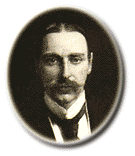 JOHN JACOB ASTOR
JOHN JACOB ASTORAn American millionaire and his wife bade farewell forever
On a vessel flush with tycoons, New Yorker John Jacob Astor IV stood out as the richest. He boarded at Cherbourg with an entourage that included his wife, Madeleine, a manservant, a maid, a nurse and his Airedale, Kitty. First-class staterooms like theirs -- richly paneled suites with working fireplaces and separate quarters for servants -- cost as much as $4,000 for the voyage, equivalent to a staggering $50,000 today.
But there was more to Astor than the $87 million fortune he made through real estate and his family's fur-trading empire. After graduating from Harvard, he patented such inventions as a turbine engine, a bicycle brake and a "vibratory disintegrator" used to produce gas from peat moss.He wrote a science-fiction novel about life on Saturn and Jupiter and financed his own Army battalion during the Spanish-American War. His first marriage, to Ava Willing of Philadelphia, lasted 10 years and produced two children.
But his second marriage, to Madeleine Force in 1911, caused a scandal. She was 18 at the time, and he was 46. To escape wagging tongues, the couple took an extended honeymoon in Europe and Egypt (where they joined his friend Molly Brown). By the time they boarded Titanic, Madeleine was five months pregnant. "They wanted the baby born in America," says historian Don Lynch.
Astor mentioned his wife's "delicate condition" when asking an officer if he could take one of several empty seats in her lifeboat, but the officer refused. Astor took it like a gentleman. He lit a cigarette and tossed his gloves to his wife. Several days later his partly crushed, soot-stained body was found floating in the Atlantic with $2,500 in a pocket. Experts believe Astor may have been hit by a falling smokestack.
In the years that followed, Mrs. Astor, who was twice remarried and died in 1940, rarely spoke of the tragedy, except to recall her final memory: Kitty, on deck, pacing frantically. On Aug. 14, 1912, she named her newborn son, a future playboy, John Jacob Astor V.
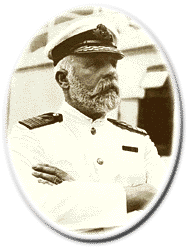 Captain E.J. Smith
Captain E.J. Smith Titanic's enduring enigma
Four months before the sinking, Smith was toasted by wealthy New Yorkers at a dinner in his honor. Known as "the millionaire's captain," he was one of the most experienced and charming ship's masters on the Atlantic run. So why did Smith steer his fully loaded ship at high speed through a field of icebergs in the middle of night? The captain took the answer with him to the bottom of the Atlantic, but nothing in his past suggests a reckless streak. Edward John Smith was born in landlocked Staffordshire, England, in 1850 and went to sea in his teens as a "boy" on a sailing ship bound around the globe and captained by his half-brother Joseph. As a captain he joined the White Star Line in 1880 and eventually skippered the maiden voyages of many of the line's newest steamers, including Titanic's sister ship Olympic. Once, while Smith was at the helm, the Olympic mysteriously struck an object while crossing the Atlantic and had to be taken to a Belfast shipyard for repairs to a propeller.
Smith, married with one daughter, was contemplating retirement after the Titanic crossing. But given what happened, says a distant relative, Pat Lacey, 75, "it's a jolly good job he went down with her instead."
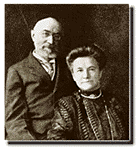 ISIDOR AND IDA STRAUS
ISIDOR AND IDA STRAUSInseparable in life, then in death
Ida Straus refused at least two opportunities to escape the sinking Titanic, choosing instead to die with her husband of 41 years, a well-known philanthropist who owned Macy's department store. News that the couple had shared their fate came as no surprise to their six children and many friends. "When they were apart, they wrote to each other every day," says Joan Adler, director of the Straus Historical Society. "She called him `my darling papa.' He called her `my darling momma.' " For years they had even celebrated their different birthdays on the same day.
As the Titanic went down, Ida, 63, resisted the pleas of officers to climb into a lifeboat, insisting instead that her maid take her place and handing the young woman her fur coat ("I won't need this anymore," she said). She was finally cajoled into boarding the second-to-last lifeboat, only to clamber out again as Isidor, 67, stepped away. Last seen clasped in an embrace, Ida and Isidor are memorialized in a Bronx cemetery with a monument inscribed, "Many waters cannot quench love, neither can the floods drown it."
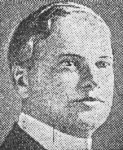
BENJAMIN GUGGENHEIM
A playboy determined to die with panache
After being informed that the ship would go down, Guggenheim -- industrialist, father of three and noted playboy -- calmly returned to his stateroom with his valet and donned his dinner suit. "We've dressed in our best and are prepared to go down like gentlemen," Guggenheim, then 47, told a steward after refusing a life jacket. "Tell my wife in New York I did my best in doing my duty."
The sixth of seven sons sired by Swiss immigrant and iron-smelting baron Meyer Guggenheim, Benjamin had boarded Titanic in Cherbourg with his latest in a long line of mistresses, French singer Léontine Aubart. Having been assured that she and her maid were safely aboard a lifeboat, Guggenheim and the valet reconvened on deck, where legend -- and Hollywood -- have them sipping brandy and smoking cigars as the ship sank.
As the rescue ship Carpathia sailed into New York harbor, three of Guggenheim's nephews rushed to the dock with his wife, Florette, who was fortunately out of earshot when an officer introduced a young blonde woman stepping off the ship as "Mrs. Benjamin Guggenheim." The real Mrs. Guggenheim was used to long periods without her husband, who spent months abroad, living lavishly and, as it turned out, squandering an estimated $8 million on bad investments. His noble death may have been a credit to his superrich family, but Guggenheim left his three children only $450,000 each, prompting daughter Peggy to later complain that she "felt like a poor relation."
He also left a message for his wife:
I think there is grave doubts that the man will get off. I am willing to remain and play the man's game if there are not enough boats for more than women and children. I won't doe here like a beast. Tell my wife, Johnson, if it should happen that my secretary and I both go doen and you are saved, tell her I played the game out straight and to the end. No women shall be left aboard because Ben Guggenheim was a coward.
As the waters rose, the violinist made sure the music never stopped
There was music. On that much witnesses of the fateful night agree. An eight-man band led by violinist Wallace Hartley continued performing as chaos reigned. What they were playing, especially just before Titanic slipped beneath the surface, is a source of long-running debate. Favorite styles of the time were certainly on the evening's program: rags, waltzes and church hymns. But both romantics and the popular press of the day preferred to believe that the last dirge was "Nearer, My God, to Thee." In past voyages, Hartley reportedly confided to bandmates that if the ship sank he would play either "Nearer, My God, to Thee" or "O God, Our Help in Ages Past."
As a devout Methodist, his selection was hardly surprising. Hartley was born in Colne, England, in 1878, the son of an insurance salesman. He took up the violin in school and found steady work playing on ships, making some 70 voyages on luxurious ocean liners. Ironically, he tried to skip the Titanic crossing. Recently engaged to Maria Robinson, a girl from Boston Spa, north of London, Hartley was loath to leave. But he thought playing on the greatest ship of the day would give him good contacts for future work. "He was thinking of giving it up, but with the Titanic, he was persuaded to come back," says Darran Ward, a Colne historian working on a book about Hartley.
His courageous, and final, performance did not go unheralded. "He was immediately labeled a hero," says Ward. The people of Colne erected a 10-foot bust in Hartley's honor, and 40,000 mourners attended his funeral. "In the best Edwardian tradition, he put duty before self," says actor Jonathan Evans-Jones, who played Hartley in the film. "Then again," he adds wryly, "he did stand very little chance of getting into those boats."
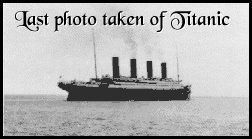
Last Goodbyes
* "Be brave. No matter what happens, be brave!" were Dr. W.T. Minahan's parting words to his wife as helped Mrs. Minahan into Boat 4.
* Adolf Dyker watched his wife climb into one of the boats, handed the little satchel containing their valuables across to her, and simply said, "I'll see you later." He then faded back into the crowd.
* "It's all right, little girl," Daniel Marvin told Mary, his bride of three weeks. "You go and I'll stay awhile." As the boat was being lowered he blew her a kiss.
* Mark Fortune saw his wife and three daugthers into a boat, then reassured them that he and his son Charles would be fine. "We're going in the next boat," he explained. One of the girls called back, "Charles, take good care of Father!"
* Mr. and Mrs. Turnell Cavendish said nothing as Mrs. Cavendish climbed into the waiting boat. Turning to her husband, she kissed him, held him close for a moment, then kissed him again. After a few moments she let him go and turned away.
* There were sons who sometimes had to be firm as husbands. When Alexander Compton heard his mother exclaim that she would sooner stay behind than leave her son, he brought her over to Boat 14 and told her, "Don't be foolish, Mother. You and Sara go in the boat--I'll look out for myself." Mrs. Compton gave in and the two women climged into the boat.
* Many of those steerag passengers left behind returned to their cabins; others turned to prayer: around 1:30 Gus Cohen passed throught the Third Class Dining Saloon and saw a large number of them gathered there, many with rosaries in their hands, "huddled together, weeping, jumping up and down as they cried to their 'Madonna' to save them." August Wennerstrom, also a Third Class passengger, later observed bitterly:
"Hundreds were in a cirlce with a preacher in the middle, praying, crying, asking God and Mary to help them. They lay there, still crying, till the water was over their heads. they just prayed and yelled, never lifting a hand to help themselves. they had lost their own willpower and expected God to do all thier work for them."
* It was just then that Greaser Walter Hurst, released from duty in the boiler rooms, had come out onto the forward well deck. He watched Boat 1 coming down the Titanic's side, and noticing that it was half empty he turned to one of his mates and remarked, "If they are sending the boats away they might as well put some people in them." It was 1:15 A.M.
* Mrs Allen Becker had just put her two youngest children into the boat when it suddenly began to lurch downward. "Please let me go with my children!" she cried. She was quickly rushed up and into the boat. At the last second she realized that her eldest daughter Ruth was still waiting on the deck. Mrs Becker called out to the girl, "Get into the next boat!" as Boat 11 descended. As the boat reached the water, someone up on the deck called down, "Is there a seamen in the boat?" When there was no reply, Seamen Brice slid down the after fall and cast off from the ship. Ruth Becker followed her mother's instructions and boarded Boat 13.
* A young man, barely more than a boy, climbed over the rail into Boat 14 and tried to hide beneath the seats among the women already in the boat. Furious, Lowe drew his revolver, dragged the young man out of his hiding place, and ordered him back onto the ship. The boy pleaded with Lowe, saying that he wouldn't take up much room, but Lowe thrust the gun in his face and said, "I'll give you just ten seconds to get back onto that ship before I blow your brains out!" Sobbing, the boy only pleaded harder, and Lowe suddenly changed tactics, saying, "For God's sake, be a man. We've got women and children to save."
By now the women in the boat, already thouroughly frightened, began crying. Eight-year old Majory collyer anxiously tugged at Lowe's arm, whimpering, "oh, Mr Man, don't shoot, please don't shoot the poor man!" Lowe smiled at her and shook his head. Somehow Lowe's mixture of threat and appeal worked, for now the young man had crawled out the boat and was lying face down on the deck. (In all the exicitement, the fifth officer failed to notice eighteen-year-old Daniel Buckley, who was sitting among the women in Boat 14 with a woman's shawl over his head.)
Awards I've Won| Rememberance Page| MIDIs| Link 2 Me| Links|
Lovers of Titanic Club| Win an Award
Email Webmaster questions, to report broken links, etc.
Counter installed September 7,1998
LE FastCounter